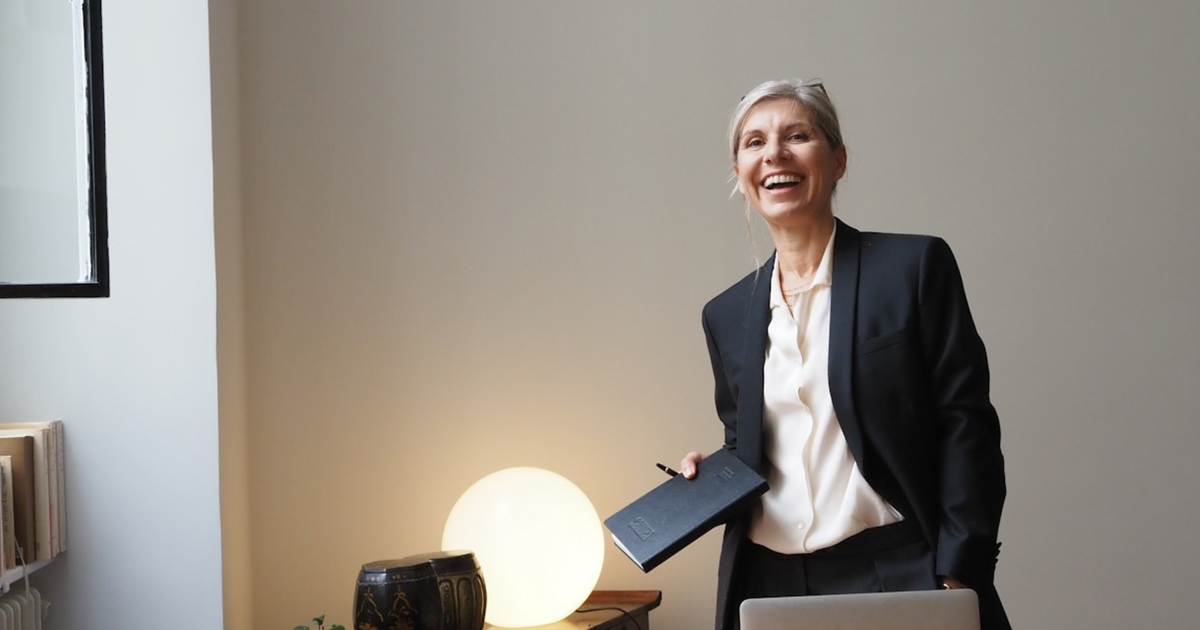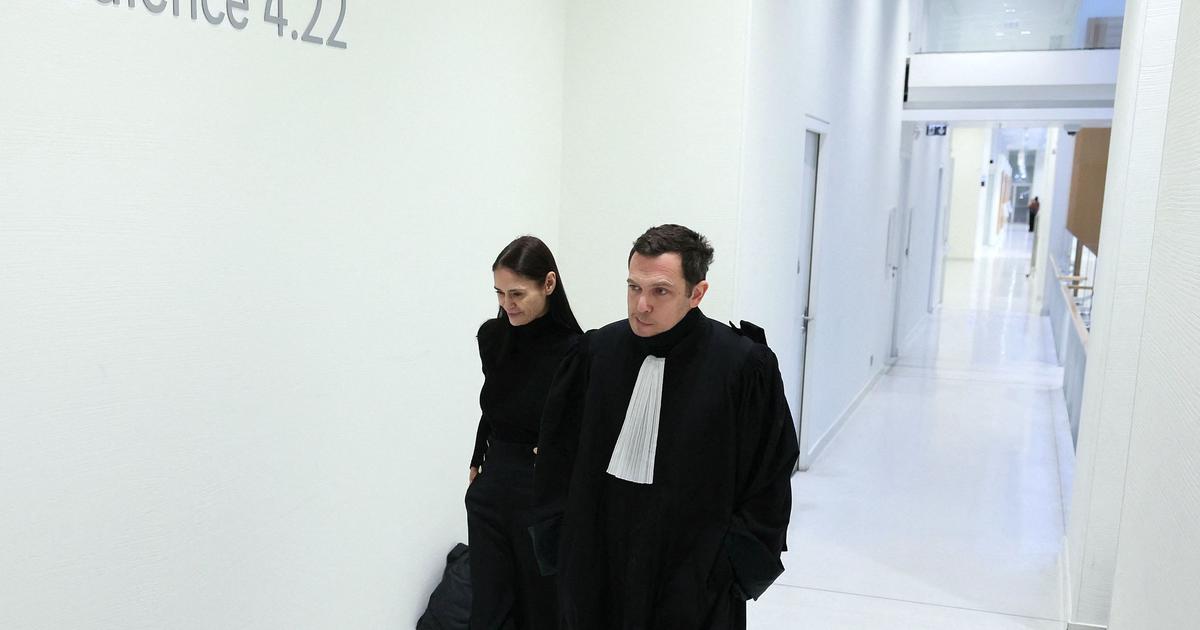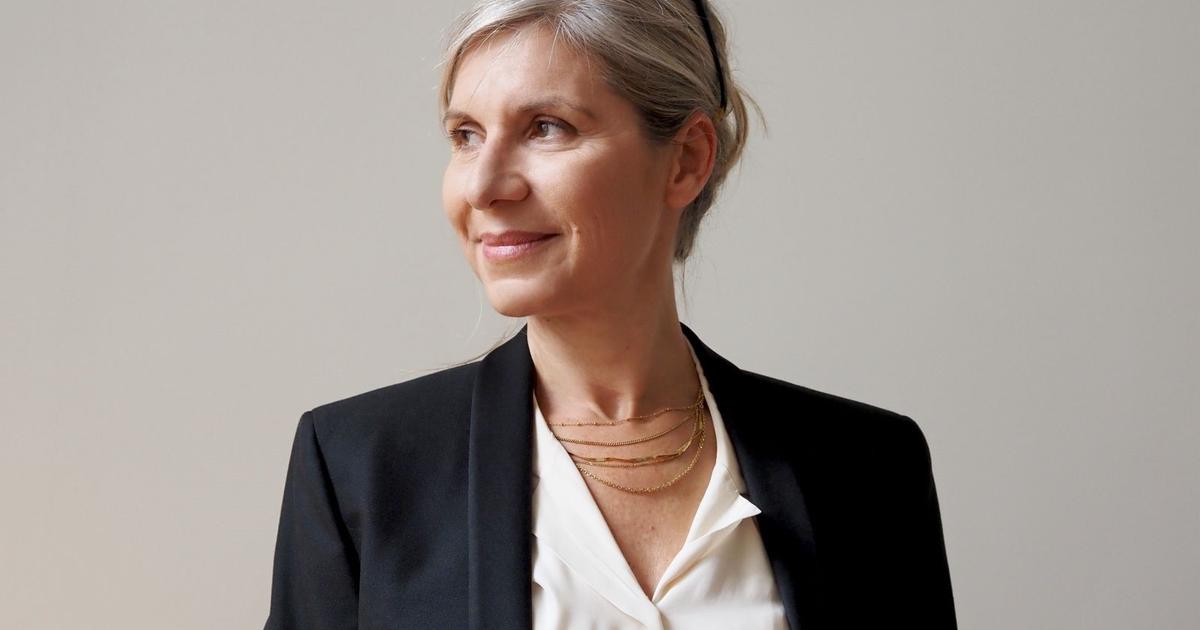She worked for a long time behind the scenes of a television channel, Canal +, but for a handful of years, Charlotte Montpezat, 57, has found another way: she became a psychoanalyst and coach. And to this renewed existence, she has just added an additional brick in the form of a book, Les Flamboyantes, whose purpose starts from her own experience. In 200 rather very lively pages, she tells the fate reserved for women in their fifties.
To discover
- Leonardo DiCaprio > Podcast: Forbidden to over 25s
- Book an exclusive visit to the Révélations craft biennial
Les Flamboyantes, a book by Charlotte Montpezat Éditions des Équateurs
His essay is both an observation and a manual to find ways to get out of the diktats that society reserves for those who, from the age of 45, are qualified as seniors. And who, therefore, live with an expiry date much stronger than that which concerns men. Meeting a stone's throw from her home, in a café in Montparnasse, where she has had her habits since her youngest age and where she is asked about ways to reinvent her life, as she approaches her fifties, and beyond.
In video, Andie MacDowell recalls her attachment to her natural color
45 years old already senior?
Mrs. Figaro-. Where did the idea and the desire to write this book come from?
Charlotte Montpezat -. On my 45th birthday, I received a letter from the HRD on my desk telling me that I was now a senior. I didn't understand, I took it as a scrap, even though I felt very young at 45. I had had a career chopped like many women - I worked abroad, I had several jobs - and I could barely find a new stability when this news broke. And there I had the feeling of having the grass torn from under my feet, of being cut off in my momentum.
Read alsoLive better, work less... How to spend 50 years at work?
Why write?
About ten years later, after having to deal with a divorce, growing children, a reconversion, I realized that what I had sensed was a reality. I saw around me the havoc it was causing. I started investigating. What was triggering was that it was not about me, there was a societal subject there. All that can be embarrassing in the ego when writing was not there: there was a sense of urgency, a struggle.
You talk about it as violence for which no one is prepared...
Not prepared at all, no. I was perched on my 12-centimetre heels, quiet. That day, moreover, I had a bouquet of flowers waiting for me at my office, which a lover had left me. I was absolutely unprepared to qualify as a senior. This warning to you at 45 is for both men and women. But men take this rather not too badly. Women are different, it goes back to the question of their expiration and even if I felt young at 45, there was probably already the specter of menopause and all that it carries as anxieties and fears.
It's like a new age, and it's an insane moment.
Charlotte Montpezat
You are still hopeful...
There is hope because times have changed. I was struck while writing the book: I reread the feminist texts and what Simone de Beauvoir wrote at 40 about the old age she sees coming and then the depression she has at 50. This woman who had deconstructed everything stumbled on the question of the age of women. She will come back to this later. But still... The difference between Beauvoir and us is 20 years more life expectancy and my hypothesis is that these 20 years have slipped into the end of life: it has recently opened a space, between 45 and 65 years, or 50 and 70 years, which is a new living space for women: The way we age has changed, much more than that of men. We no longer take charge of ourselves in the same way, we treat ourselves differently, we live differently.
Read alsoSimone de Beauvoir, Simone Veil, Beyoncé, Chimamanda Ngozi Adichie... The great figures of feminism
New Freedom
How to define this additional space of life?
It's like a new age, and it's an insane moment: I have a lot of 45-year-old friends who are terrified of getting to 50 and I tell them it's the best time in life because you know where you are: the children have grown up, you have more money than when you were 20, you have more free time, even if we know that we will not make more fortune than we have already made. It is a new form of freedom and probably also very disconcerting... If we can manage this new freedom, that's great.
What place does the body take in all these questions?
The question of the body is central when we talk about aging, and even more so when it comes to women: their appearance, object of narcissism, takes a hit first. When women's bodies change, they are less valued. And they lose confidence in themselves. Especially those who have been beautiful from an early age and who at 50 years old take full view. I'm not making this up, Susan Sontag wrote about that. For men, it's not the same at all. They are not expired at 50 but highly valued, from the point of view of seduction.
There is an adolescence of old age
Charlotte Montpezat
How is desire rebuilt from the age of 50?
When I hear desire, I understand Lacanian desire: libido, the impulse of life. To the extent that this unfolds in a new available time, it is necessary to reallocate one's desire, to devote it to different things. For example: all the life impulse previously placed in children, in a certain type of functioning, must be questioned and it can be moved elsewhere. How? By doing a good psychoanalysis! (Laughter) More precisely, everyone must find their way, as when we are teenagers: we must look for what we want to do with the rest of our lives.
Life after 50 begins with a new adolescence?
It is not impossible. There is an adolescence of old age, so to speak. Singer and actress Helena Noguerra explains that you have to invent the character you're going to be. At 40 or 50, you have to invent the lady you will be twenty years later...
With which tools? How are we armed for this?
As a psychoanalyst, I answer: through psychoanalysis. But more broadly, we must realize the field of possibilities. As long as it is barred, as long as we do not make a story for ourselves, nothing can exist. The first thing is to realize that there is a space to clear and to allow ourselves to be what we want, beyond the expiry date that we are assigned. You then have to work on yourself, on your desire, to know precisely which field you want to invest.
You yourselves have reinvented yourself, reconverted. How did you do it?
It's getting ready! The real story is that I fell in love with psychoanalysis, and I had planned my reconversion twenty years ago. Because I knew I was going to have to work for the rest of my life: I had a career with holes, I worked abroad, I didn't contribute as much as I should have, I divorced, I worked in the black when I was young, etc... So I knew early on that I had to find a job that I could have until the end. But I was working in television and I realized that it would not last my whole life. And so, I told myself at 55 that I still had the energy to make this switch, which requires a lot of courage, all the same. But I had the desire, the strength, the energy, the health. So it was time to do it. That said, everyone has their own story and we must not despair those who have not prepared it so much. I believe that everyone has in themselves a hidden desire dating back to childhood and this is where we must probably work, search.
People in their 50s and 60s are just as sexually active as younger people
Charlotte Montpezat
An "elsewhere" of one's own
What advice can you give to those who want to change their lives? I often give this advice: you always have to have a plan B, a way out. I know it can be a bit of a horror movie but the corporate world is super hard. It is exciting but it can be very violent. My two ways to survive in a company are never to put yourself in a slave position but to use the company to do what you want, insofar as it also serves the final purpose of the company and, then, above all, always have a way out, if only in mind. And this to be able to say to myself: if it ends tomorrow, this is what I will do. It is essential to think this way.
It is a philosophy of life: there is always somewhere else?
This is the condition of freedom. We cannot put our destiny in the hands of a single person and even less of an organization that we know will evolve but without knowing how and if it will be in our direction.
And sexuality: is it important in these considerations about how we evolve after 50?
This question arises because it invades the press, the media: it is a question that is everywhere. But in real life I'm not sure it arises as much. At that age, we know each other better. People in their 50s and 60s have just as much sexual activity as younger people. Thank you, everything is fine! (Laughter
Charlotte Montpezat, Les Flamboyantes, Éditions des Équateurs, 208 pages, 21 euros.






